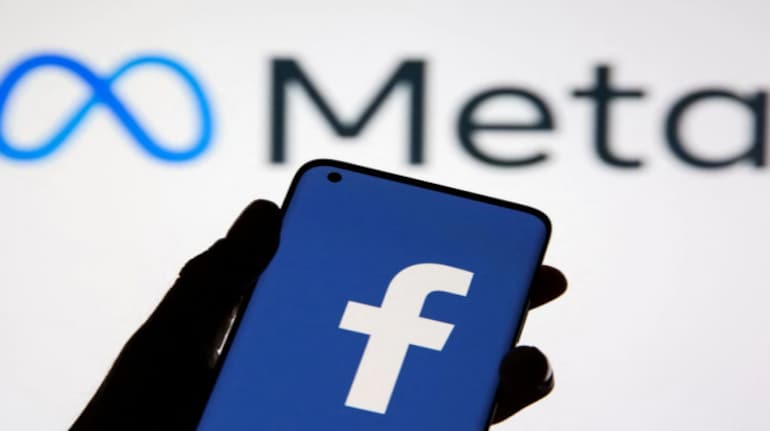



WhatsApp India head Abhijit Bose and Meta India's director of public policy Rajiv Aggarwal have left the company, less than two weeks after the departure of Meta India's country head Ajit Mohan.
These developments come against the backdrop of Facebook's parent company laying off 11,000 people worldwide on November 9. People familiar with the situation, however, told Moneycontrol that these departures are not related to the layoffs.
"It has been planned for a while, but given the events last week, we wanted to hold this back so we could focus on supporting those impacted last week," Bose said in a LinkedIn post. He said that he plans to work on a new startup after a short break, with more details expected to be unveiled soon.
"I'm very proud of the strong organization that we've built in India, as well as the business results and market impact that the team has delivered. In particular, we built a team with an entrepreneurial mindset and pushed many ideas, experiments & pilots. Some failed, some went well, and a few, in my opinion, have the potential to change the country and maybe even our company" Bose said in the post.
With over 400 million users, India is the largest market for the Meta-owned messaging app. Moneycontrol exclusively reported on November 1 that the app is on track to generate $1 billion in revenue in India by next year.
“I want to thank Abhijit Bose for his tremendous contributions as our first Head of WhatsApp in India. His entrepreneurial drive helped our team deliver new services that have benefited millions of people and businesses,” Will Cathcart, Head of WhatsApp, said in a statement.
First WhatsApp India country headBose, who previously co-founded offline payments startup Ezetap (now part of Razorpay), joined WhatsApp as the head of WhatsApp India in November 2018, marking the first time the messaging app created a country head role anywhere in the world.
He was hired to drive small business and enterprise adoption of WhatsApp's business products, as well as to accelerate the app's payment business and develop a broader financial services strategy for the messaging app.
Under Bose's leadership, WhatsApp made significant progress in India with its API-based business products, even as business messaging became more strategic for Meta over the last 12-18 months.
The app now gives users access to banking, micro-pensions, and micro-insurance, as well as preventive and urgent medical care, government-to-citizen services, education, and job skilling, among other things.
The company has also developed a number of new use cases, such as an end-to-end shopping experience within WhatsApp via a partnership with RIL's digital unit Jio Platforms, a QR ticketing service for Bengaluru Metro passengers, and the ability to book an Uber ride from the messaging app, among others.
"(The India) team’s work throughout the pandemic stands out as a shining example of how WhatsApp can drive exponential social impact. I hope that the early use cases that have been lit up in India, will continue to serve as a template for many sectors within India and across the globe" he said in the LinkedIn post.
Bose has previously spoken about their work with private, small finance and cooperative banks to accelerate the adoption and usage of mobile banking services through WhatsApp.
"There is so much more WhatsApp can do for India and we’re excited to continue helping advance India’s digital transformation," Cathcart said.
That said, WhatsApp's UPI-based payment service has been hampered by restrictions on its user base since its inception in November 2020, due to which it has failed to take off in a significant manner in the country.
The National Payments Corporation of India (NPCI), which operates the country's retail payment and settlement systems, has been gradually increasing the user cap for the service which currently stands at 100 million users.
WhatsApp Pay currently holds a miniscule 0.1 percent of the total UPI market, as compared to rivals PhonePe (47.2 percent) and Google Pay (34.2 percent).
Manesh Mahatme, the head of WhatsApp's payment business in India, also left the company after nearly 18 months, Moneycontrol reported in September.
New public policy directorShivnath Thukral, who is currently the director of public policy at WhatsApp India, has been appointed as the director of public policy for Meta India, which includes Facebook, Instagram, and WhatsApp.
Thukral, who joined Meta's public policy team in 2017, will succeed Aggarwal, who is leaving the company after a stint of just over a year to pursue another opportunity, the company said.
Commenting on Aggarwal's departure, Manish Chopra, Director, Partnerships, India - Meta, said, "Over the last year, he has played an important role in leading our policy-led initiatives in areas such as user-safety, privacy and scaling up programs like GOAL to drive digital inclusion in the country. He has also been leading proactive engagement with critical policy and regulatory stakeholders. We are grateful for his contributions and wish him very best for the future".
In this role, Thukral will be responsible for formulating and leading important policy development initiatives across Facebook, Instagram, and WhatsApp in India, the company said.
This appointment, however, comes at a time when the government has given itself the authority to appoint a quasi-judicial body to hear user appeals against digital intermediaries' content moderation decisions.
"We remain committed to our users in India and will continue to contribute meaningfully to the regulatory process that will enable everyone to harness the full potential of India’s digital economy," said Chopra, who is currently serving as the company's interim India head.
Disclosure: Moneycontrol is a part of the Network18 group. Network18 is controlled by Independent Media Trust, of which Reliance Industries is the sole beneficiary.Discover the latest Business News, Sensex, and Nifty updates. Obtain Personal Finance insights, tax queries, and expert opinions on Moneycontrol or download the Moneycontrol App to stay updated!
Find the best of Al News in one place, specially curated for you every weekend.
Stay on top of the latest tech trends and biggest startup news.